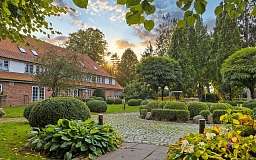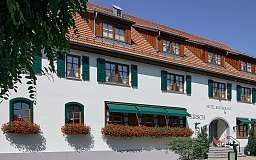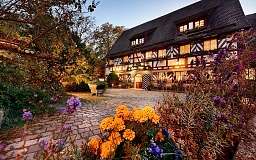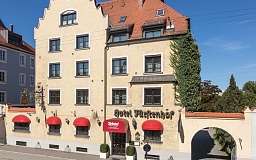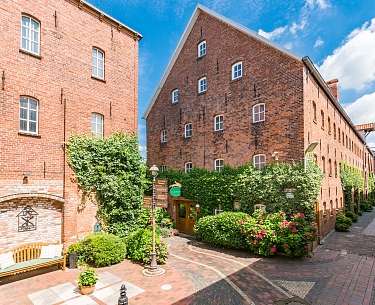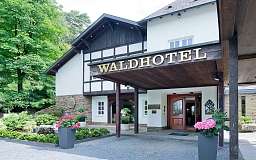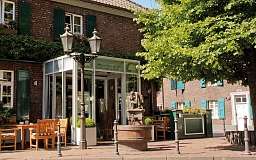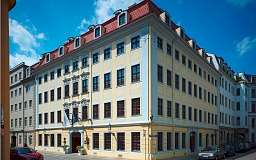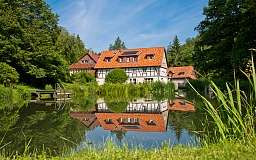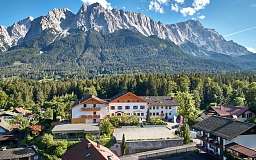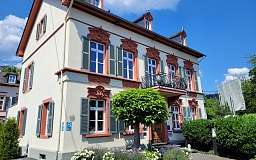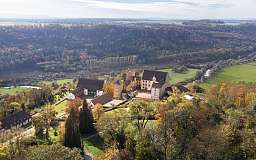UNESCO World Heritage Sites - Discover the wonders of Germany
Immerse yourself in the historical splendor of Germany's UNESCO World Heritage Sites and enjoy the warm hospitality of Romantik Hotels & Restaurants. Be enchanted by the rich history and cultural heritage of these extraordinary destinations and spend your nights in our Romantik Hotels full of history and tradition.



Tips for your UNESCO vacation
The Hanseatic City of Lübeck
The Hanseatic city of Lübeck is one of the oldest and most important cities in northern Germany. It is characterized by numerous buildings in the brick Gothic style, including the Holsten Gate, St. Mary's Church and the town hall. In 1987, Lübeck's Old Town was added to the UNESCO World Heritage List. UNESCO recognizes the Old Town as "an exceptional example of the development and importance of the Hanseatic League".
Old town Stralsund
The old town of Stralsund is one of the largest and best-preserved medieval towns in northern Germany. It was founded in 1234 and was an important Hanseatic city in the Middle Ages. The old town of Stralsund is characterized by numerous buildings from the Middle Ages and the Renaissance.
Half-timbered town Quedlinburg
Quedlinburg is a town in the Harz Mountains in Saxony-Anhalt. The old town of Quedlinburg is characterized by numerous half-timbered houses dating from the 12th to the 19th century. It is one of the largest half-timbered town complexes in Europe and was added to the UNESCO World Heritage List in 1994.
The UNESCO destinations with Romantik Hotels in Germany
You can find more inspiration for UNESCO World Heritage Sites in Germany in our blog post.
Romantik Hotels in UNESCO regions
Germany

Romantik Hotel
Chalet am Kiental
FAQs/Useful information
Germany has many impressive World Heritage Sites. Some of the most famous are Cologne Cathedral, the old town of Bamberg, Lübeck, Lutherstadt Wittenberg, the caves and Ice Age art of the Swabian Alb, Sanssouci Palace in Potsdam and the Wadden Sea.
The weather in Germany can vary depending on the time of year. It is advisable to be prepared for different weather conditions. In general, summers are mild to warm, while winters can be cool to cold.
Germany has a well-developed public transportation network, including trains and buses. Deutsche Bahn offers convenient connections between different cities and sights. Alternatively, you can also consider renting a car.
For most World Heritage Sites in Germany there are day and annual tickets. Day tickets are usually cheaper than annual tickets, but they only allow you to visit the World Heritage Site on one day. Annual tickets are usually more expensive, but they allow you to visit the World Heritage Site unlimited times.
The official currency in Germany is the euro (€). It is advisable to carry some cash, but credit and debit cards are widely accepted.
The official language in Germany is German. However, many Germans also speak English, especially in tourist areas and in major cities.
Try local dishes in restaurants, visit markets and cultural events. Be respectful of local culture and traditions to enjoy an authentic experience.
Yes, most international visitors need a visa to enter Germany. Check the current entry requirements before your trip and apply for a visa in good time if necessary. More information
There are various ways to get to Germany. You can travel by plane, train, bus or car.
- By air: Most international flights to Germany land in Frankfurt, Munich or Berlin. From there you can continue your journey by train, bus or car.
- By train: There are numerous train connections to Germany from various cities in Europe. You can travel on the Intercity Express, the Eurostar or the ICE.
- By bus: There are numerous bus connections to Germany from various cities in Europe. You can travel with Flixbus, MeinFernbus or Eurolines.
- By car: If you are traveling to Germany by car, you can travel via various freeways. The most important highways in Germany are the A1, A2 and A3.
- UNESCO World Heritage Sites Germany e.V. at the ITB in Berlin - March 5, 2024 - March 7, 2024
- Annual Conference of UNESCO World Heritage Sites Germany together with World Heritage Experience Switzerland - May 22, 2024 - May 24, 2024
- UNESCO World Heritage Day 2024 - "Experience and discover diversity"- June 2, 2024





